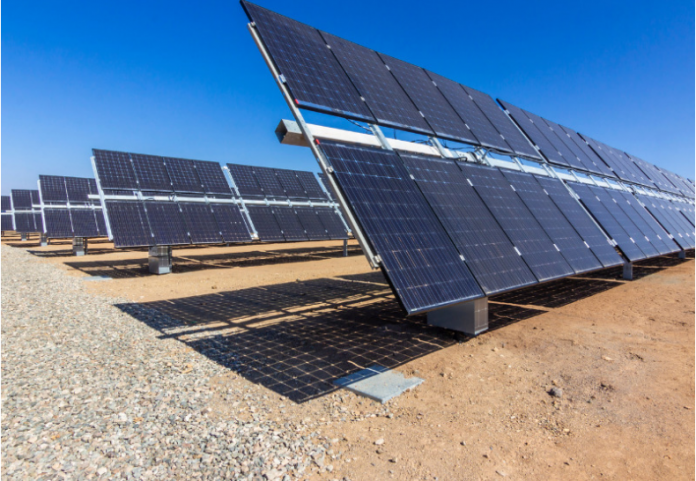The Rajasthan Electricity Regulatory Commission (RERC), in a recent order, dismissed the petition filed by a solar power generator and ruled that the amount raised by the Jodhpur Vidyut Vitran Nigam Limited (JdVVNL) regarding the wheeling charges was a valid one, and the generator had to pay the amount.
While addressing a separate petition, the Commission ruled that the petitioner was liable to pay reactive charges only on the energy drawn from the grid and not on the energy injected into the grid.
The Commission directed the distribution company (DISCOM) to refund the reactive energy charges recovered from the petitioner, if any, for the energy injected into the grid.
Dhursar Solar Power had filed petitions seeking the adjudication of disputes regarding the unlawful recovery of wheeling charges by the Jodhpur DISCOM and the proper implementation of the Commission’s earlier order regarding unlawful levy of reactive energy charges and maximum demand charges.
Background
Dhursar Solar Power has set up a 40 MW solar project at Dhursar in the Jaisalmer district of Rajasthan. The solar power generator has a long-term energy purchase agreement (EPA) of 25 years with Adani Electricity Mumbai.
The solar project is connected to the Rajasthan state transmission network at the Dechu substation through a 31-km-long 220 kV transmission line.
For evacuating power to meet its obligation under the prescribed EPA, the petitioner signed a long-term open access agreement with the Rajasthan Rajya Vidyut Prasaran Nigam, which is a state transmission utility, and another long-term access agreement with the Power Grid Corporation of India Limited on March 30, 2012, and March 23, 2012, respectively.
Later, the DISCOM issued a letter demanding wheeling charges from the petitioner at the rate of ?0.01 (~$0.0001)/kWh based on the open access capacity contracted. The solar power generator objected to the claim of the DISCOM, stating that it was not using any network of JdVVNL for supplying power from its solar project to its power procurer.
The solar power generator clarified that as per the Electricity Act, 2003, ‘wheeling’ meant the operation whereby the distribution system and associated facilities of a transmission licensee or distribution licensee were being used by another person for the conveyance of electricity on payment of charges. However, no part of the distribution system of JdVVNL was being used by the petitioner for supplying power from its solar project to its procurer. Thus, there was no question of paying any wheeling charges.
The solar power generator clarified that since the commissioning of the solar project, it had been billed for wheeling charges by JdVVNL from April 1, 2012, to February 24, 2016, at the rate of 0.01 (~$0.0001)/kWh on scheduled energy. After that, from February 25, 2016, onwards at the rate of 0.01 (~$0.0001)/kWh on open access contracted capacity of 33 MW considering the capacity utilization factor.
Dhursar Solar Power further stated that the DISCOM had unlawfully claimed wheeling charges aggregating to 17.77 million (~$239,341) from April 2012 to July 2020. Out of the said amount, it had already paid wheeling charges of 17.47 million (~$235,301) from April 2012 to June 2020, which was refundable to the generator.
Regarding the reactive energy charges, the solar generator said that as per the Commission’s earlier order, it had to pay such charges only on the reactive energy drawn from the grid and not on the energy injected into the grid.
The solar power generator added that under the garb of limitation, the DISCOM could not be permitted to baselessly recover maximum demand charges.
Commission’s analysis
The Commission observed that the main contention of the solar power generator was that it was not using any distribution network of JdVVNL for supplying power from its solar project to its power procurer.
The Commission noted that on a similar issue regarding the applicability of wheeling losses for consumers connected at the extra-high voltage (EHV) substation, it had issued orders stating that wheeling charges applied to consumers connected to the EHV grid, and the demand raised by the DISCOM for wheeling charges to the petitioner was valid.
Regarding the reactive charges and maximum demand charges, the Commission noted that the DISCOM levied maximum demand charges based on the readings recorded in the meter installed at ex-bus at generating end.
“Further, as far as reactive energy charges are concerned, the solar generator is liable to pay reactive energy charges only on the energy drawn from the grid, not on the energy injected into the grid. The DISCOM had submitted that it had charged the reactive energy charges only on energy drawn from the grid. Hence, the DISCOM is directed to refund the reactive energy charges recovered from the petitioner, if any, on the energy injected into the grid,” the Commission added.
Recently, the Andhra Pradesh Electricity Regulatory Commission ruled in favor of a solar power generator, stating the Southern Power Distribution Company of Andhra Pradesh was not entitled to recover wheeling charges and losses regarding the connectivity of a 20 MW solar project with 132/33 kV Sambepalli substation of Transmission Corporation of Andhra Pradesh. The Commission further noted that wheeling charges were liable to be paid if the open access users used the transmission or distribution system and associated facilities.
In March last year, RERC had issued a suo-motu order regarding the directives issued by the state government for the banking of power, transmission and wheeling charges, power projects with storage systems, and rooftop solar projects.
Subscribe to Mercom’s real-time Regulatory Updates to ensure you don’t miss any critical updates from the renewable industry.
Solar Power Generator’s Plea Regarding Payment of Wheeling Charges Rejected
The Rajasthan Commission added that the solar power generator was liable to pay reactive energy charges only on the energy drawn from the grid
Source:MERCOM






